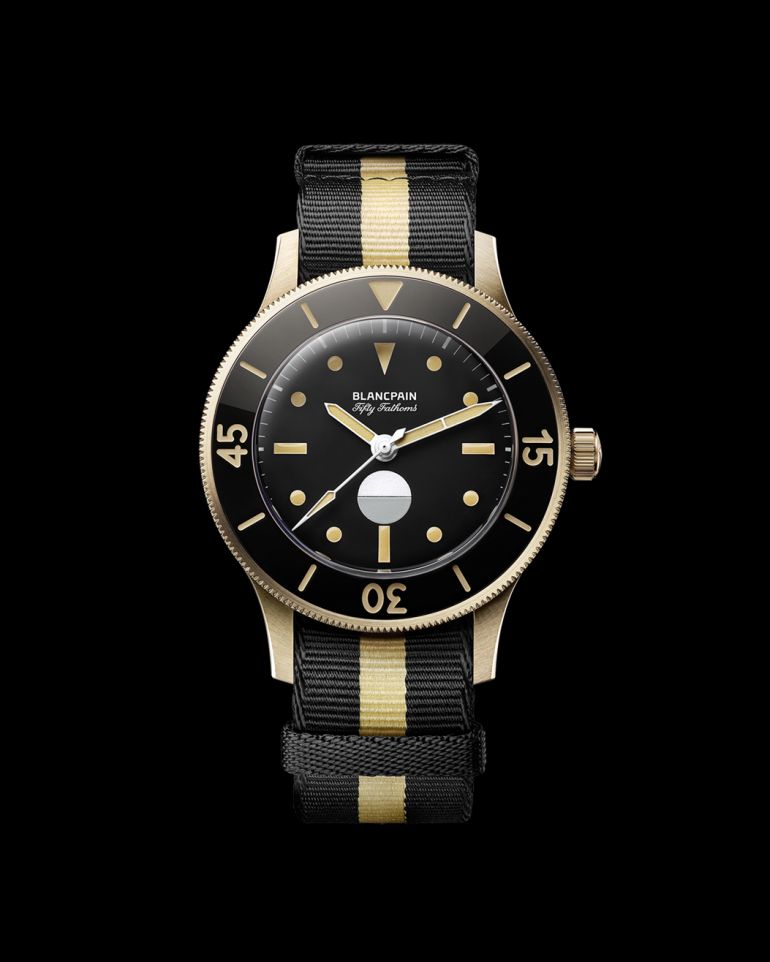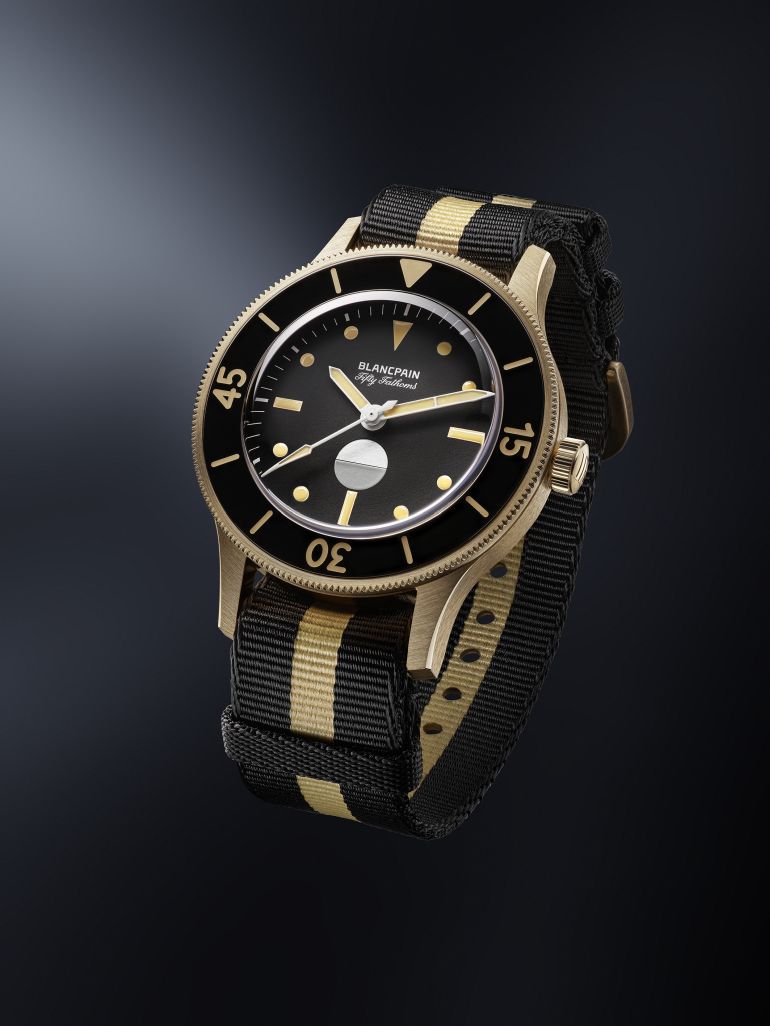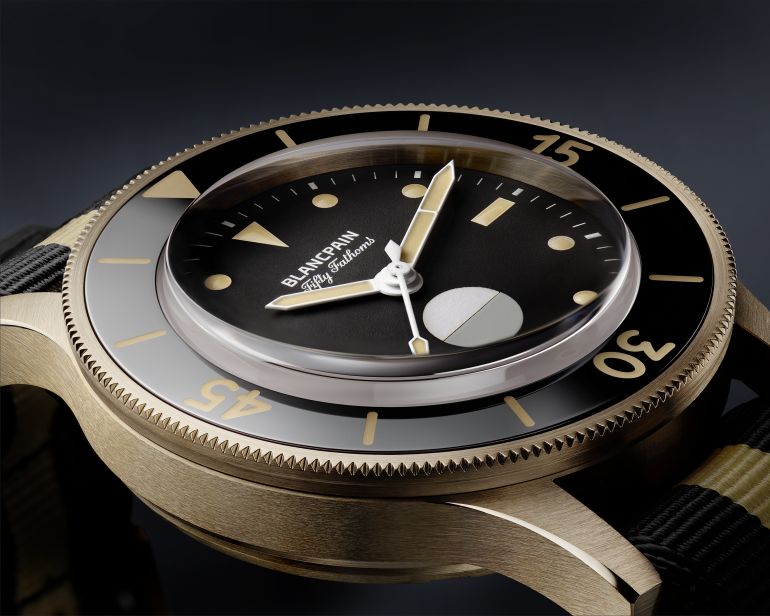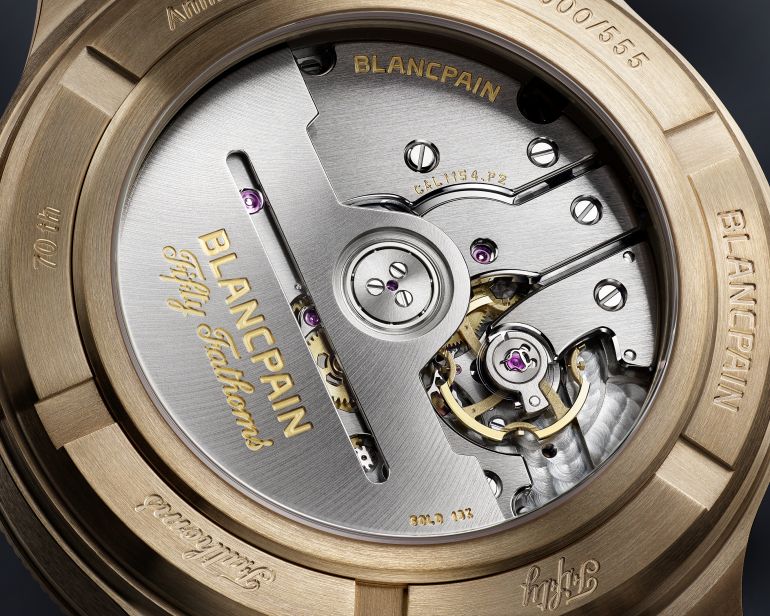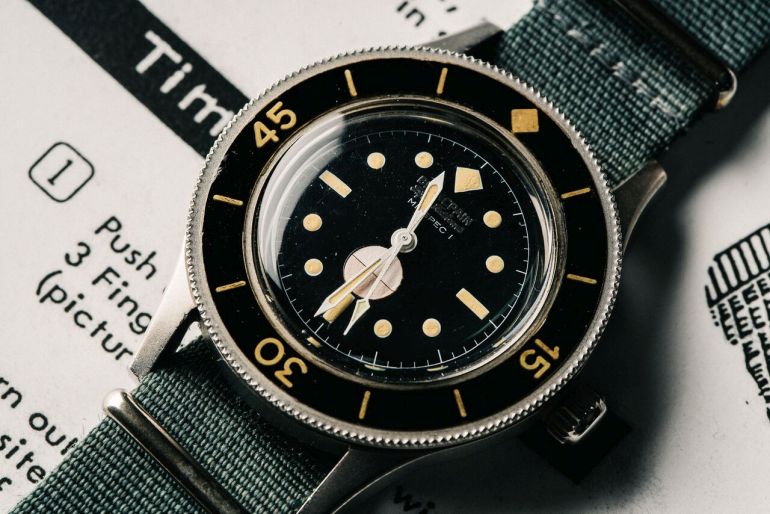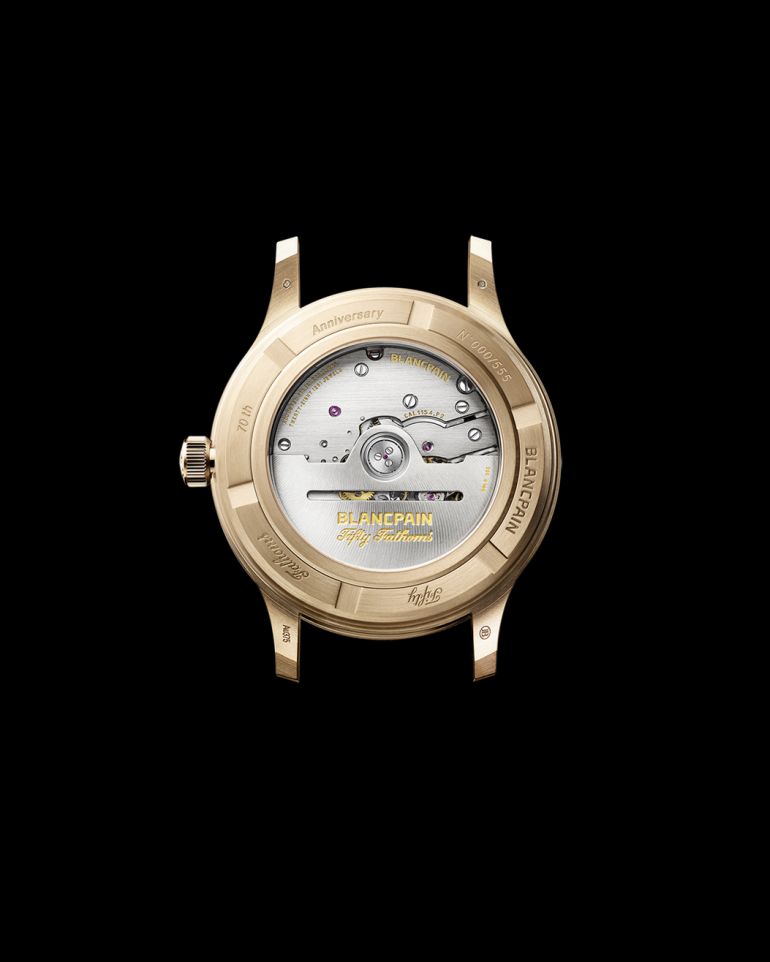The 70th anniversary celebrations of Fifty Fathoms in Blancpain took place in three acts, namely with the presentation of three models, christened Fifty Fathoms 70th Anniversary Act 1, 2 and 3.
Act III was presented last weekend in Cannes, on the French Riviera, where the story of the Fifty Fathoms began. It was an opportunity to retrace the milestones of this watch, which in 1953 introduced those elements that are now listed in the international ISO 6425 standard for diving watches.
That is, a dive time indicator (such as a unidirectional rotating bezel), an indicator that the watch is running (e.g. a seconds hand), water resistance of at least 10 bar, and indications visible in the dark from a distance of at least 25 cm.
The Fifty Fathoms, for the first time in the history of wristwatches, had all these features, plus protection against magnetic fields and automatic winding (so as not to wear out the crown seals).
It was Jean-Jacques Fiechter, co-director of Blancpain and an avid diver who, after running out of oxygen during a dive on the Côte d'Azur, defined the characteristics that a watch that was safe for a diver had to possess. It was a far-sighted decision. Only 10 years earlier, in fact, Jacques Cousteau had invented the Aqua Lung, an open-circuit rebreather, which made scuba diving a sport, accessible to all.
In 1955, the Fifty Fathoms was fitted with a moisture indicator, which changed colour to signal the presence of water in the case, and was later named Mil-Spec. This is the model that was selected by the U.S. Navy in 1959.
And this is the watch taken as a reference for the design of the new Fifty Fathoms 70th Anniversary Act III: a watch made of a special gold/bronze alloy with 37.5% gold (9 carat) and produced in a limited edition of 555 pieces, but which we would like to see permanently in the catalogue. Perhaps in steel?


